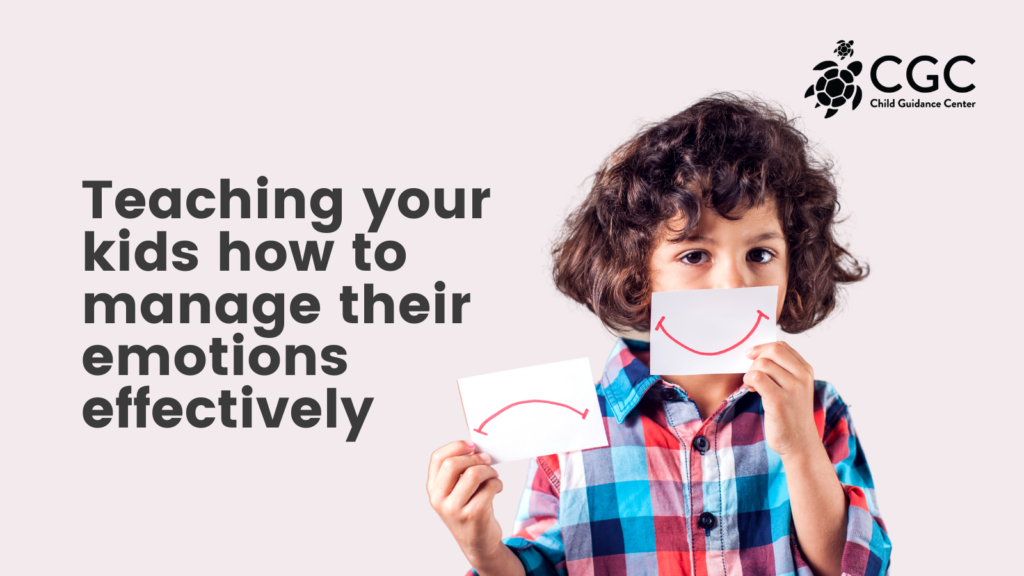
As parents, we want our kids to be able to manage their emotions effectively. Emotional intelligence is a key life skill that will help them in all areas of their lives. But how do we go about teaching our kids how to do this? It can be tricky, but with these tips, you can help your child learn how to process and deal with their emotions in a healthy way.
How to help kids understand and deal with their feelings
It can be difficult for kids to understand and deal with their emotions. They may feel scared, sad, mad, or embarrassed but not know how to express themselves. As a parent, you can help your child by teaching them about their feelings.
Talk about what each feeling means and why they might feel that way. Help them identify when they are feeling a certain way and come up with ideas for how to deal with that feeling. For example, if they feel mad, they might need to take deep breaths or go for a walk. If they feel sad, they might need to talk to someone about what is bothering them. Teaching your child about what each feeling means—and that feeling that way is normal and ok—will help them understand and deal with their emotions in a healthy way.
One way to do this is to provide a labeling activity. This can be as simple as giving them a sheet of paper with different emotions listed and having them circle the ones they’re feeling. Once they’ve identified their feelings, you can talk about ways to deal with them. For example, if they’re feeling angry, you might suggest things like punching a pillow or going for a walk. If they’re feeling sad, you might suggest writing in a journal or talking to a friend. Helping kids label and understand their feelings is an important step in helping them cope in a healthy way.
There are a few key things that parents can do to help their kids learn how to understand their emotions:
- It’s important to model healthy emotional management yourself. Kids are constantly watching and learning from their parents, so set a good example by constructively handling your own emotions.
- Teach kids how to label their emotions. This will help them to understand what they’re feeling and why.
- Provide kids with healthy outlets for their emotions. Whether it’s through exercise, art, or simply talking about their feelings, helping kids to express their emotions in a positive way will go a long way towards teaching them how to manage their feelings in a healthy way.
Ideas for helping kids when they’re feeling overwhelmed or upset
As adults, we often take for granted the coping mechanisms we’ve developed over the years. However, for kids who are still learning how to navigate their emotions, a little extra help can go a long way. Here are a few ideas for helping kids when they’re feeling overwhelmed or upset:
- Encourage them to express how they’re feeling. It can be helpful for kids to put their feelings into words, whether they’re talking to you or writing in a journal. Letting them know it’s ok to feel overwhelmed can be a huge relief.
- Help them to identify healthy coping mechanisms. Whether taking a walk, listening to music, or doing deep breathing exercises, identifying and practicing healthy coping mechanisms can help kids feel more in control when they’re feeling overwhelmed.
- Provide opportunities for your child to move, whether running in the backyard or a park, stretching or doing yoga in the living room, or helping you move things in the home to work their muscles. Exercise can help your child cope with emotions they don’t know what to do with—and it helps grownups as well!
- Always be there for them as a listening ear. Sometimes just knowing that someone cares and is willing to listen can make all the difference in the world.
Conclusion
As any parent knows, kids can be emotional creatures. They may throw a tantrum over a minor annoyance or become withdrawn and sullen for no apparent reason. When kids are emotional, it can be tough for them to think logically. While it can be tempting to try to appease or distract them from their emotions, it’s essential to teach kids how to manage their emotions in a healthy way. After all, emotions are a normal and essential part of life. By helping kids to understand their emotions and what to do with them, we can set them on the path to a happy and healthy future.